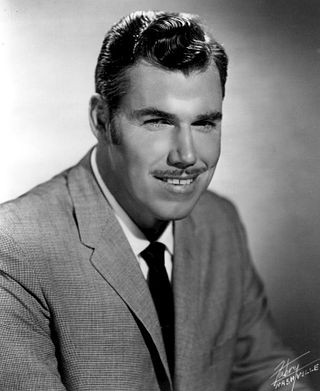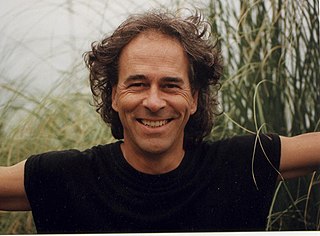Related Research Articles

Polyphony is a type of musical texture consisting of two or more simultaneous lines of independent melody, as opposed to a musical texture with just one voice (monophony) or a texture with one dominant melodic voice accompanied by chords (homophony).

Alpine folk music is the common umbrella designation of a number of related styles of traditional folk music in the Alpine regions of Slovenia, Northern Croatia, Germany, Austria, Switzerland and South Tyrol (Italy).

Yodeling is a form of singing which involves repeated and rapid changes of pitch between the low-pitch chest register and the high-pitch head register or falsetto. The English word yodel is derived from the German word jodeln, meaning "to utter the syllable jo". This vocal technique is used in many cultures worldwide. Recent scientific research concerning yodeling and non-Western cultures suggests that music and speech may have evolved from a common prosodic precursor.
Switzerland has long had a distinct cultural identity, despite its diversity of German, French, Italian, Romansh and other ethnicities. Religious and folk music dominated the country until the 17th century, with growth in production of other kinds of music occurring slowly.

Switzerland lies at the crossroads of several major European cultures. Three of the continent's major languages, German, French and Italian, are national languages of Switzerland, along with Romansh, spoken by a small minority. Therefore, Swiss culture is characterized by diversity, which is reflected in a wide range of traditional customs. The 26 cantons also account for the large cultural diversity.

Wilfred Arthur Charles Carter, professionally known as Wilf Carter in his native Canada and also as Montana Slim in the United States, was a Canadian Country and Western singer, songwriter, guitarist, and yodeller. He wrote over 500 songs.

Ottis Dewey "Slim" Whitman Jr. was an American country music singer and guitarist known for his yodeling abilities and his use of falsetto. Recorded figures show 70 million sales, during a career that spanned more than seven decades. His prolific output included more than 100 albums and around 500 recorded songs; these consisted of country music, contemporary gospel, Broadway show tunes, love songs, and standards. Soon after being signed, in the 1950s Whitman toured with Elvis Presley.

Silbermond is a German pop rock band from Bautzen, Saxony. The band consists of Stefanie Kloß, Andreas Nowak, and brothers Johannes and Thomas Stolle.

Hannes Wader is a German singer-songwriter ("Liedermacher"). He has been an important figure in German leftist circles since the 1970s, with his songs covering such themes as socialist, communist resistance to oppression in Europe and other places like Latin America, as well as peace (anti-war) songs. He both wrote new songs and played versions of older historical works.

The Swiss peasant war of 1653 was a popular revolt in the Old Swiss Confederacy at the time of the Ancien Régime. A devaluation of Bernese money caused a tax revolt that spread from the Entlebuch valley in the Canton of Lucerne to the Emmental valley in the Canton of Bern and then to the cantons of Solothurn and Basel and also to the Aargau.

Roland Zoss is a songwriter, musician and novelist. He studied anthropology and literature in Bern and Avignon. He lives in the Aeolian Islands.

Ramblin' Jack Elliott Sings Songs by Woody Guthrie and Jimmie Rodgers is an album by American folk musician Ramblin' Jack Elliott. It was released in 1960 in Great Britain and in 1962 in the US on the Monitor label. [discrepancy - Discogs shows UK album by Columbia being released in 1961]
Volkslied is a genre of popular songs in German which are traditionally sung. While many of them were first passed orally, several collections were published from the late 18th century. Later, some popular songs were also included in this classification.

Hubert von Goisern is an Austrian singer-songwriter and world musician. With his mix of rock music and elements of traditional Volksmusik he has become a prominent exponent of the so-called New Volksmusik and Alpine Rock in Austria, Switzerland and Germany. His stage name von Goisern refers to his hometown. Hubert von Goisern has won numerous record certifications and several national and international awards.

Corin Curschellas is a Swiss singer-songwriter, vocalist, free improvisation, actress, voice actress in as well as voice instructress.

Gerold Späth is a Swiss author, poet and writer.
Mike Johnson is an American country music yodeler, singer, and songwriter living in Arlington, Virginia. Also known as Country Music's No.1 Black Yodeler, and Black Yodel No.1.

Neues Geistliches Lied, abbreviated NGL, is a music genre of songs in German intended for church usage, and based on contemporary lyrics and with music by contemporary composers.

Marco Kunz, better known as simply Kunz, is a Swiss singer from Lucerne.

Erika Stucky is a Swiss musician, singer, composer, and accordionist, best known for her solo albums Jimi (2005), Princess (2005), Suicidal Yodels (2007), Black Widow (2013), Call Me Helium (2015), and Papito (2017).
References
- ↑ Plantenga, Bart (2013). Yodel in Hi-Fi: From Kitsch Folk to Contemporary Electronica. University of Wisconsin Pres. p. 153. ISBN 9780299290535 . Retrieved 10 October 2014.
- ↑ Boesiger, Robert (24 November 2018). Alles bleibt Anders. Bern, Switzerland: Verlag Werd & Weber. p. 335. ISBN 9783859329362.